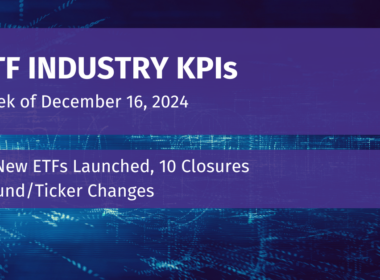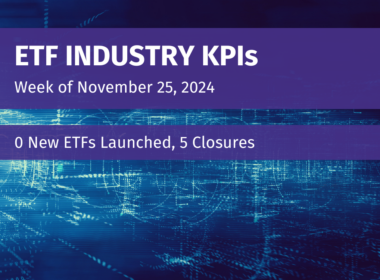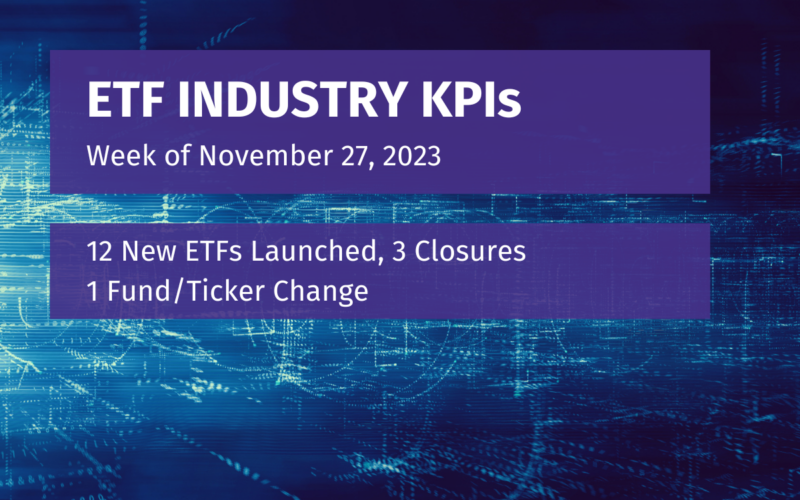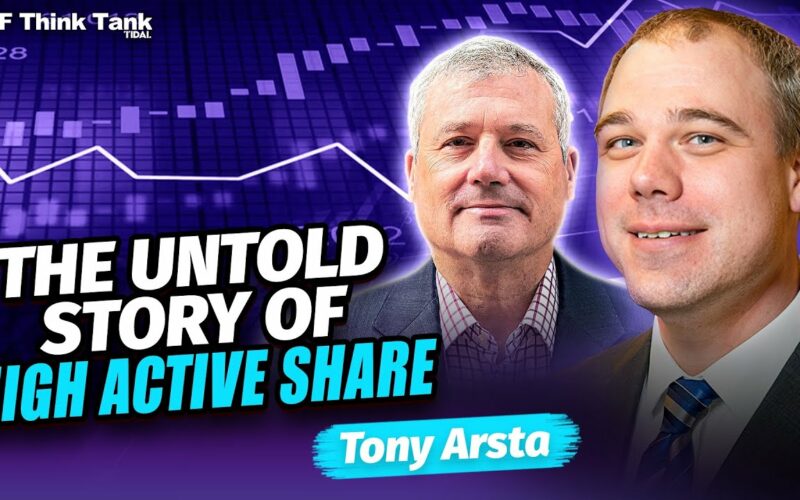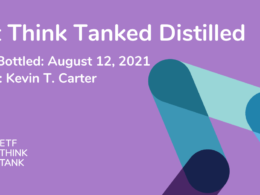The financial markets have always been a place teeming with confidence. Participants usually have high conviction in their positions and only change their points of view after things have gone wrong. That may be true today more than ever before thanks to social media and the amount of information available to consume. Peter Atwater, who is a professor at William & Mary and author of the book “The Confidence Map”, has spent years studying the idea of overconfidence and how it impacts everything in our lives. He joins the ETF Think Tank to discuss how this relates to the financial markets and the decision making processes within them.
There are all sorts of factors that affect our level of confidence. People look at hard numbers, such as the unemployment rate or stock market returns, and wonder why people feel so bad despite this? Atwater explains that there are many factors that go into sentiment well beyond just economic ones. One thing that’s affecting morale right now is that even when things get better, such as falling energy prices, people don’t think it will last. Having a job isn’t the sentiment boost it once was either. If you don’t feel good about life in general, it carries over to everything else.
Can that doubt or uncertainty be productive? Atwater says that the opposite of confidence is vulnerability, but we’re lousy at making decisions when we’re vulnerable. People tend to emphasize the present instead of the future and that can affect both the choices made and the outcome. People, in general, need to be careful when they assign a high probability to an outcome. It’s a measure of overconfidence that needs to be brought back in check. We don’t pay attention to underconfidence in the way we should and there may be opportunities that we can miss.
In general, Atwater believes that people have a terrible understanding of confidence. It’s about the certainty and control of what’s around us. People tend to be more reactive than proactive and that has an impact on how a decision is approached. Have conditions, our stories, our actions or our preferences changed? You can do a much better job of anticipating what’s next if you understand your own confidence and the confidence of the markets.
Atwater believes that the current state of the markets has created some general overconfidence. Lately, we’ve seen this swirling narrative where the belief that lower interest rates will lead to higher stocks and that’s fed off of itself for several weeks. The enthusiasm has become so extreme so quickly that investors in both stocks and bonds have become nearly euphoric, which adds to the downside risk. One of Atwater’s favorite sayings is “prepare for what you imagine, but be prepared for what you can’t imagine”. Low probability events usually have the highest impact.
Are we constantly looking for confirmation? How do we snap out of it at the right time? Atwater says that we choose the media we follow. Whatever you’re turning on, you’re turning it on because it resonates with you. We need to be careful because we have the ability to live in a huge echo chamber in a way that we never have before. The more narrow that your information sources are, the more likely you are to get impacted by overconfidence bias. People tend to be attracted to the “truthiness” of a story or concept if it confirms their beliefs. There’s a bubble in doom right now that may take some time to deflate.
Other key takeaways:
- People are most confident when they’re employed, but higher interest rates are forcing companies to lower their cost of capital. Atwater believes that the current economy could end up mirroring the ‘70s stagflation recession. It’s tougher when you lose your job as the cost of living is going up around you.
- Politicians are unlikely (or unwilling) to do much to inspire confidence. Political leaders usually are going to mirror our impulsiveness, combativeness, and stress. Most politicians don’t have enough social capital that they can be courageous.
- People are less confident about investing outside of the United States. Things that are far away from us are much more abstract. Because of that distance, we’re much less willing to consider it. When confidence is low, for example, we don’t travel abroad. To invest internationally is to reject the idea of acting only with high confidence.
Disclosure
All investments involve risk, including possible loss of principal.
The material provided here is for informational purposes only and should not be considered an individualized recommendation or personalized investment advice. The investment strategies mentioned here may not be suitable for everyone. Each investor needs to review an investment strategy for his or her own particular situation before making any investment decision.
All expressions of opinion are subject to change without notice in reaction to shifting market conditions. Data contained herein from third-party providers is obtained from what are considered reliable sources. However, its accuracy, completeness, or reliability cannot be guaranteed.
Examples provided are for illustrative purposes only and not intended to be reflective of results you can expect to achieve.
The value of investments and the income from them can go down as well as up and investors may not get back the amounts originally invested, and can be affected by changes in interest rates, exchange rates, general market conditions, political, social, and economic developments, and other variable factors. Investment involves risks including but not limited to, possible delays in payments and loss of income or capital. Neither Tidal nor any of its affiliates guarantees any rate of return or the return of capital invested. This commentary material is available for informational purposes only and nothing herein constitutes an offer to sell or a solicitation of an offer to buy any security and nothing herein should be construed as such. All investment strategies and investments involve risk of loss, including the possible loss of all amounts invested, and nothing herein should be construed as a guarantee of any specific outcome or profit. While we have gathered the information presented herein from sources that we believe to be reliable, we cannot guarantee the accuracy or completeness of the information presented and the information presented should not be relied upon as such. Any opinions expressed herein are our opinions and are current only as of the date of distribution, and are subject to change without notice. We disclaim any obligation to provide revised opinions in the event of changed circumstances.
The information in this material is confidential and proprietary and may not be used other than by the intended user. Neither Tidal nor its affiliates or any of their officers or employees of Tidal accepts any liability whatsoever for any loss arising from any use of this material or its contents. This material may not be reproduced, distributed, or published without prior written permission from Tidal. Distribution of this material may be restricted in certain jurisdictions. Any persons coming into possession of this material should seek advice for details of and observe such restrictions (if any).


